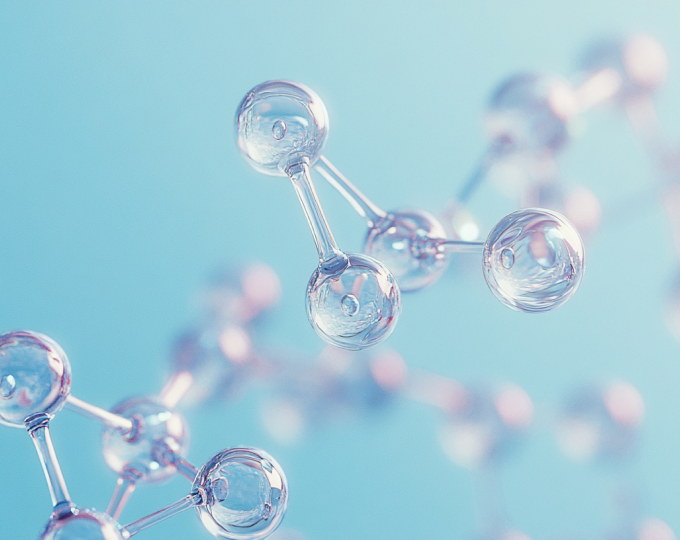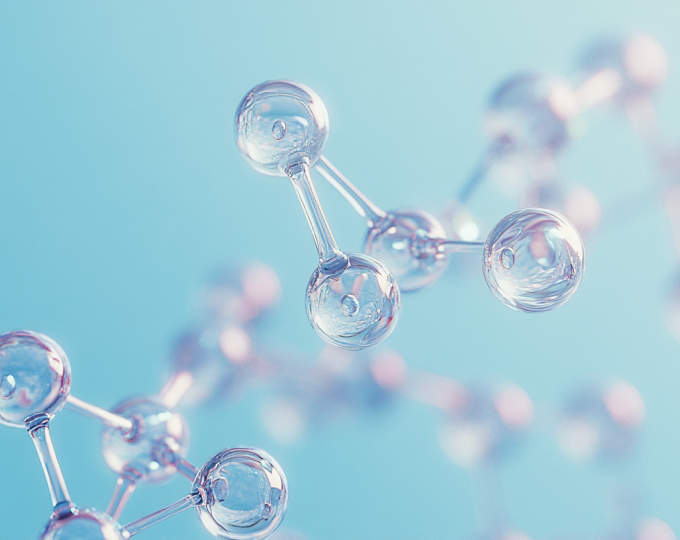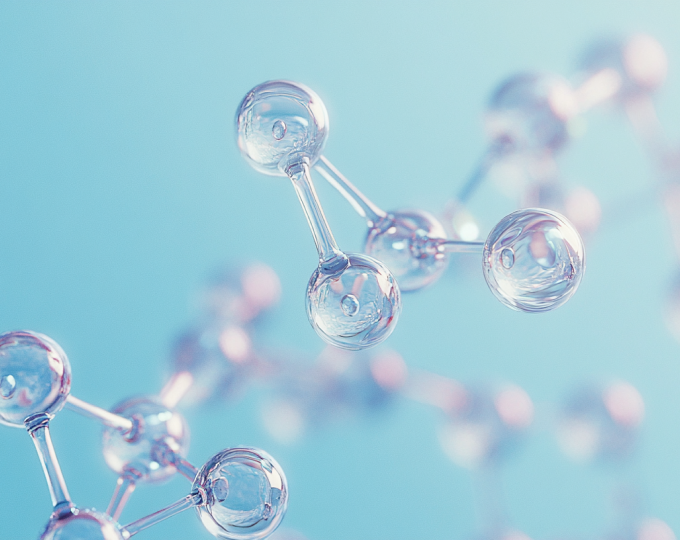Themen dieses Blogartikels:
What is Leucine?
Leucine is an essential amino acid. This means that it must be obtained from food. Leucine is also a branched chain amino acid (BCAA).
What are the functions of Leucine?
Leucine is proteinogenic, meaning it is required for the synthesis of proteins. This amino acid is also purely ketogenic, meaning that it is used for ketone body synthesis during periods of hunger or heavy exertion. The advantage of ketone body synthesis is that these ketone bodies are produced in the liver and can then be transported, preferably to tissues such as the muscles and, after a conversion, also to the brain. They represent a very efficient way of transporting and generating energy. Like valine, leucine has a positive effect on the release of somatotropin1. This is an important growth hormone.
What makes Leucine unique?
Leucine is a branched-chain amino acid that contributes to muscle building and maintenance2.
How much Leucine do you need per day?
The German Nutrition Society (DGE) has not yet issued a general recommendation for the daily intake of leucine. However, it is assumed that the daily requirement of an adult is around 14 mg per kilogram of body weight. So if you weigh 70 kg, for example, you should consume around 980 mg of leucine per day.3
When do you need Leucine most?
An adequate supply of leucine is particularly important for athletes and during longer periods of fasting. The requirement is also increased during periods of stress.
How does a Leucine deficiency develop and how does it manifest itself?
Large amounts of leucine are mainly found in animal foods. Vegetarians and vegans should therefore make sure they get enough leucine. Athletes who train intensively should also keep an eye on their leucine supply, as their requirements are increased. Serious illnesses such as cancer, kidney and liver disease can lead to the body not being able to properly utilize the amino acids supplied, which can result in a deficiency. An undersupply of leucine can manifest itself, for example, in muscle weakness, fatigue and a weakened immune system4.
What happens if there is an overdose of Leucine?
The Federal Institute for Risk Assessment (BfR) recommends that healthy adults should not consume more than 4 g of leucine per day via food supplements.5 In the event of an overdose, blood ammonia levels may rise and symptoms such as headaches, nausea and diarrhea may develop. Important to know: Consuming high doses of a certain amino acid can interfere with the absorption of other amino acids.6. For example, an overdose of leucine has a negative effect on the utilization of isoleucine and valine.
Which foods are particularly high in Leucine?
Leucine is protein-bound in beef, millet, corn, oats, legumes and nuts.
This dictionary entry is based on carefully researched sources:
Bibliography & Sources
- https://www.zentrum-der-gesundheit.de/ernaehrung/naehrstoffe/aminosaeuren/aminosaeuren
- https://link.springer.com/article/10.1007/s41973-023-00228-y
- https://www.vitalstoff-lexikon.de/Aminosaeuren/Leucin/Zuühr
- https://www.pharmazeutische-zeitung.de/pharm4-44-2000/
- https://www.bfr.bund.de/cm/343/futterrgaenzmittel-isolierte-verzweigtkettige-aminosaeuren-koennen-bei-hoher-aufnahme-die-gesundheit-beeintraechtigen.pdf
- https://www.verbraucherzentrale.de/wissen/lebensmittel/bedarfsergaenzmittel/extraportion-aminosaeuren-ueberfluessig-im-freizeitsport-13314























